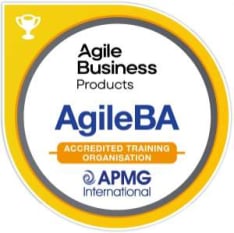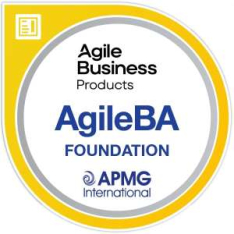 To help and support our clients we are providing a limited number of 250 daily discount codes. Hurry, first come, first served!
To help and support our clients we are providing a limited number of 250 daily discount codes. Hurry, first come, first served!
Agile Business Analysis Training Courses FAQs

Why we're the go to training provider for you

Best price in the industry
You won't find better value in the marketplace. If you do find a lower price, we will beat it.

Trusted & Approved
We are accredited by PeopleCert on behalf of AXELOS

Many delivery methods
Flexible delivery methods are available depending on your learning style.

High quality resources
Resources are included for a comprehensive learning experience.




"Really good course and well organised. Trainer was great with a sense of humour - his experience allowed a free flowing course, structured to help you gain as much information & relevant experience whilst helping prepare you for the exam"
Joshua Davies, Thames Water



Looking for more information on Agile Business Analysis Training Courses
 Top 30 Agile Business Analyst Interview Questions
Top 30 Agile Business Analyst Interview Questions Business Analyst Role in Agile: Explained
Business Analyst Role in Agile: Explained Business Analyst Role in Agile: Explained
Business Analyst Role in Agile: Explained Agile Business Analyst Resume: Proven Strategies & Samples
Agile Business Analyst Resume: Proven Strategies & Samples Agile Business Analyst Resume: Proven Strategies & Samples
Agile Business Analyst Resume: Proven Strategies & Samples Agile Business Analyst vs. Product Owner: The Key Differences
Agile Business Analyst vs. Product Owner: The Key Differences Role of Business Analysts in Agile Scrum
Role of Business Analysts in Agile Scrum


















 If you wish to make any changes to your course, please
If you wish to make any changes to your course, please


